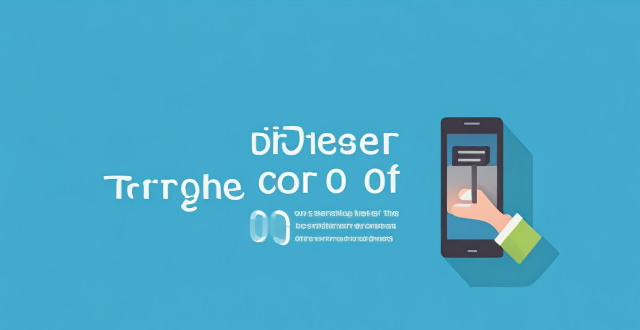The text discusses whether turning off Wi-Fi or data when not in use can help save battery on mobile devices. It explains that turning off Wi-Fi reduces background activity and network traffic, while turning off data eliminates cellular data usage and push notifications, both of which can contribute to longer battery life. The conclusion suggests that the best approach depends on the specific usage scenario and encourages users to strike a balance between convenience and battery life by using features like Airplane Mode or Low Power Mode and monitoring app usage.

Is it better to turn off Wi-Fi or data when not in use to save battery?
When it comes to saving battery life on your mobile device, there are several factors to consider. One of the most common questions is whether it's better to turn off Wi-Fi or data when not in use. Here's a detailed answer:
Why turning off Wi-Fi can help save battery
- Reduced background activity: When Wi-Fi is turned on, your device constantly searches for available networks and connects to them automatically. This process consumes battery power. Turning off Wi-Fi reduces this background activity, which can help save battery.
- Decreased network traffic: With Wi-Fi turned off, your device won't receive any data over the wireless connection. This means fewer apps will be able to update or sync in the background, resulting in less network traffic and potentially longer battery life.
- Improved standby time: If you're not using your device for an extended period, turning off Wi-Fi can significantly improve its standby time since there will be no unnecessary network connections draining the battery.
Why turning off data can help save battery
- Eliminated cellular data usage: Mobile data connections (3G, 4G, 5G) are known for their high energy consumption compared to Wi-Fi. By turning off data, you effectively eliminate all cellular data usage, which can lead to significant battery savings.
- Fewer push notifications: Many apps rely on data connections to send push notifications. Without a data connection, these notifications won't come through, reducing the number of times your device needs to wake up and process new information.
- Prevent unexpected data usage: Even if you're not actively using your device, some apps may still use data in the background for various purposes like syncing or updating content. Turning off data prevents this unexpected usage from occurring and draining your battery.
Conclusion
Both turning off Wi-Fi and data can help save battery life, but the best approach depends on your specific usage scenario. If you're at home or work where a reliable Wi-Fi network is available, turning off data and keeping Wi-Fi on might be the most convenient option. However, if you're out and about or don't have access to a trusted Wi-Fi network, turning off both Wi-Fi and data could provide the most significant battery savings.
Ultimately, it's essential to strike a balance between convenience and battery life. Consider enabling features like Airplane Mode or Low Power Mode, which can help reduce energy consumption by disabling certain functions altogether. Additionally, regularly monitoring which apps are using the most battery and adjusting their settings accordingly can further enhance your device's overall battery performance.